Last updated on April 5th, 2024 at 06:00 pm
A battery stores energy in the form of chemical energy, while a capacitor stores energy in the form of electric field. As a result, batteries are better suited for applications that require a continuous flow of power, such as powering car accessories, while capacitors are better suited for applications that require short bursts of power, such as operating a camera flash.
Table of Contents
- A battery has a better energy density than a capacitor, which means it can store more energy per unit volume.
- A capacitor is generally used for filtering applications, while batteries are used as a power supply.
- A battery is an active device as it can supply energy for a continuous period. While a capacitor is a passive device as it cannot supply energy for continuous periods.
- Not all capacitors have polarity, ceramic capacitors for example, but every battery has a polarity.
- The dielectric material used in a capacitor can be optimized for specific applications. This ensures that the capacitor can function at its maximum efficiency for the given application.
Key differences
Now let us discuss some more differences between them.
| Feature | Capacitor | Battery |
| Energy storage | Energy is stored in the electric field. | Energy is stored in the form of chemical energy. |
| Passive/Active | It is a passive component. | It is an active component. |
| AC/DC | Ideal for AC applications. | Provides DC. |
| What’s inside? | Composed of thin metal plates separated by an insulator (dielectric). | Composed of metals and chemicals |
| Energy density | Lower energy density. | Better energy density. |
| Charge-discharge rate | Rapid charging and discharging rates. | Slow charging and discharging rates. |
| Run time | Instantaneous discharge. | Longer run time. |
| Temperature | Excellent temperature performance | More sensitive to temperature |
| Nominal voltage | Voltage decreases rapidly while discharging. | Provides a constant voltage till the cut-off. |
| Price | Higher cost. | Comparatively cheaper. |
| Applications | Perfect for high voltage and high-frequency applications. | Only a few models are suitable for high voltage applications. |
| Circuit polarity | The polarity of the circuit need not change while charging and discharging. | The polarity of the electronic circuit must be opposite while charging and discharging a battery. |
You should know this!
To a beginner, capacitor(Electrolytic) and battery may seem identical when viewed physically.
Electrolytic Capacitor- Two terminals dipped in a dielectric medium.
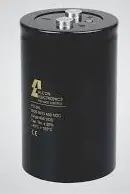
Battery- Two terminals dipped in an electrochemical solution.
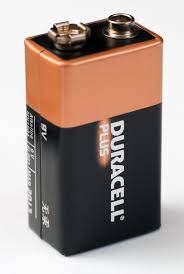
So to say that “a capacitor stores energy in the form of electric field and a battery stores energy in the form of chemical” does not truly answer the question. Because an electrolytic capacitor and a battery may seem identical from the outside.
So the true difference between them lies in the relationship between the charge stored and the voltage.
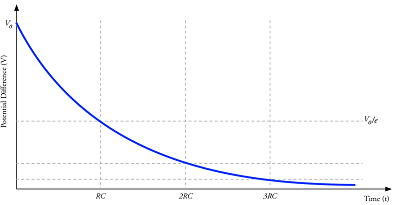
When a fully charged capacitor discharges with a constant current, the voltage across it decreases linearly with the charge. Whereas this is different for a battery. The batteries are designed to provide a constant voltage. In other words, it discharges by maintaining a constant terminal voltage.
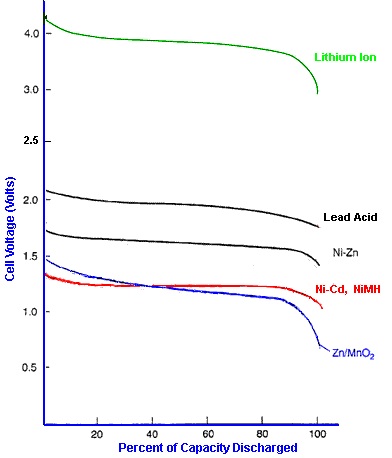
What is a battery?
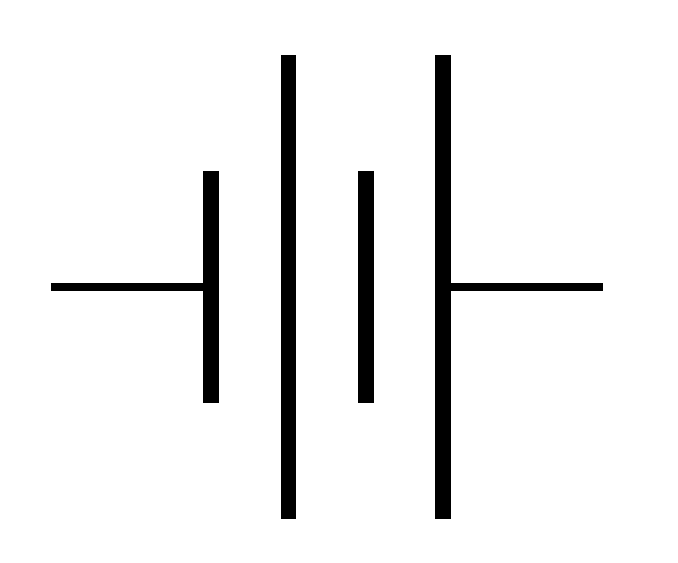
Batteries store and release electric power. The energy in batteries is stored as chemical energy. Different types of batteries are available in the market. They differ in chemical composition, shape, size, nominal voltage, capacity, and many more features. Thus we can make a better choice of batteries for our purpose from this wide variety.
How does a battery work?
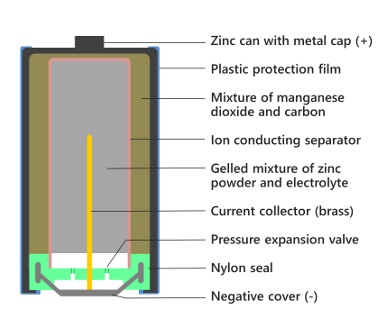
The three primary components called anode, cathode, and electrolyte are common in all batteries. The anode is the negative terminal and the cathode is the positive terminal. When it is connected in a closed circuit, the energy causes the flow of electrons from the anode to the cathode via the electrolyte. This flow of electrons results in electricity. Read more
Rechargeble and Non-rechargable batteries
When a battery discharges, it provides power to the circuit at a constant voltage (terminal voltage). Once it is drained out completely, it provides no more power. The rechargeable batteries can be reused because they can reverse the chemical reaction and restore energy. The non-rechargeable batteries are for one-time use.
What is a Capacitor?
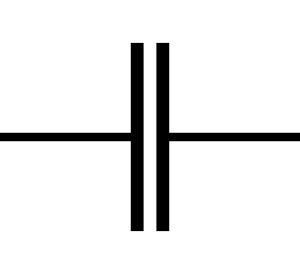
A capacitor is a component that stores electric energy in an electric field. Its major parts are two conducting plates separated by a dielectric. When the current enters the capacitor, the charge is accumulated on the plates. This generates a potential difference across the insulator.
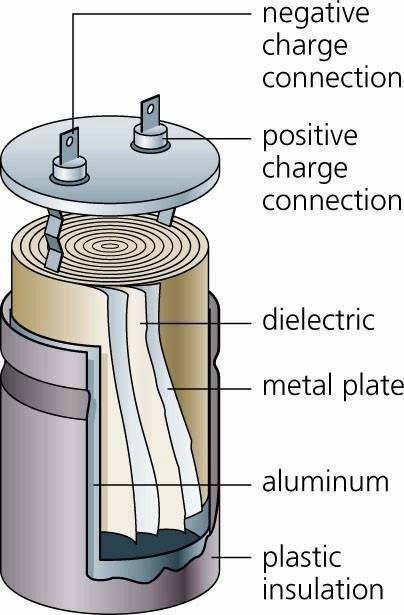
Once it is connected to an electric circuit, the current discharges rapidly. Similar to that of a battery, every capacitor is designed for a specific capacitance that decides its capacity or storage.
Battery vs Capacitor- Efficiency
Batteries store energy in the form of chemicals. Chemical reactions take place during both the charging and discharging phases. These reactions require energy and result in energy loss. Due to this, the overall efficiency of batteries is low. Lead acid batteries have an efficiency of 65%, whereas Li-ion batteries have an efficiency of 80%.
A capacitor, on the other hand, stores energy in an electric field. And give it back to the circuit as electrical energy. There is no extra energy required for this conversion, it’s simply a case of give-and-take. That is why capacitors are very efficient, up to 98%.
